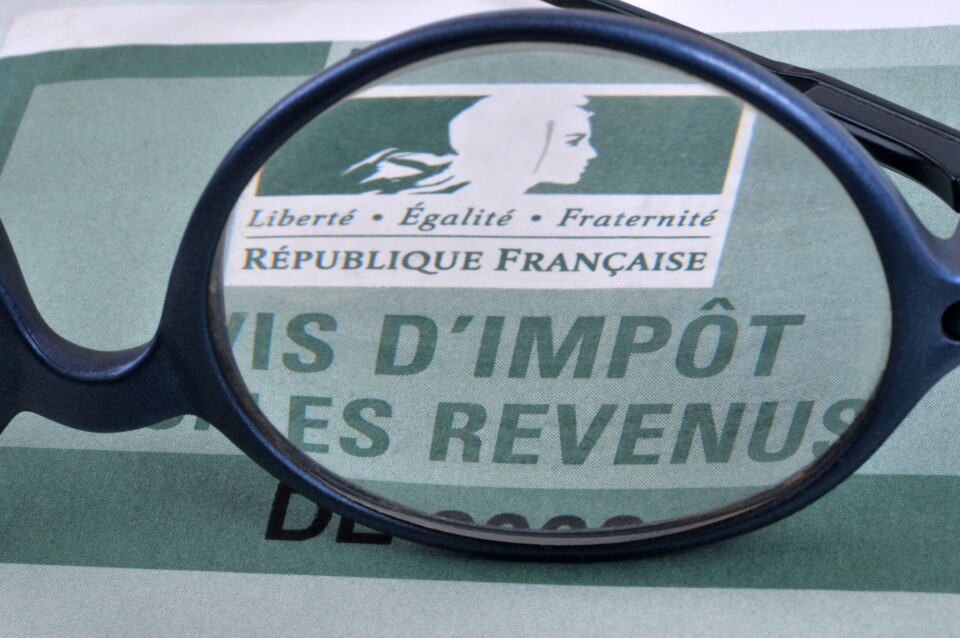-
Many Société Générale customers to be charged additional fees from April
There is some good news for international banking and instant transfers, however
-
French tax officials have extra ‘weapons’ to challenge suspicious declarations
Taxpayers may be asked for further evidence or explanations to justify expenses or credit claims
-
When must a bank reimburse a customer scam victim in France?
Reimbursement can depend on whether the customer has been ‘negligent’
Income declarations in France: Key points on overseas bank accounts
We give an overview of how to declare your overseas financial details to the French tax authorities

Every adult resident of France is obliged to submit a French income tax return.
There is an annual income tax declaration to be made every spring relating to income earned in the previous (calendar) year so the declaration this spring covers income from 2022.
You need to make a declaration whether or not you believe you need to pay any tax.
This also holds for non-residents who receive certain French revenues, such as that from renting out a property.
It is important, especially when moving to France, to be aware that it is your responsibility to make a declaration.
This includes detailing any overseas accounts or investments that you hold.
Most declarations must now be made online.
Read more: Tax declaration forms are on their way to some French homes
If you have any foreign bank accounts or investment schemes such as life assurance policies (held by you, your spouse or a dependant during all or part of 2022) you must complete the online section / paper form 3916 - 3916 bis.
It has the same name online and on paper.
If previously completed online the same accounts will be listed for you to check and if you wish, carry over this year (reporter).
Read more: Need to declare income in France? Here is when and where you can do it
Online, select Comptes à l’étranger under Divers, when selecting the rubriques (sections) you need at the start of your declaration.
You also need to select the form on the Déclarations annexes button.
Once chosen, this will be listed, along with any other annexe forms, at the top left of your screen and you will have to complete it before signing your declaration.
If declaring on paper remember to cross box 8UU (bank accounts) or 8TT (life assurance) at the end of the main 2042.
Neobank accounts
You need to declare overseas neobank accounts and if in doubt where they are domiciled, check.
For example, Revolut is a UK-based company but French residents’ accounts are held within Lithuanian or French subsidiaries (you can tell by the letters in the account’s Iban number).
Monese, also UK-based, holds French-based clients’ accounts in France so they are not concerned but N26 is based in Germany and holds French clients’ accounts there.
Notes to the form say it concerns accounts habitually receiving deposits of money, shares or equivalents, but one financial expert stated that it is safest to declare any form of account ‘capable’ of holding a balance.
The declaration relates to accounts or policies you opened, closed or held in 2022 whether you used them or not.
Include online entities such as Wise (formerly Transferwise) or PayPal.
Account exemptions
There is an exemption if the account is adossé à (linked to) a French bank account and you use it for online purchases or to receive money from selling goods, and the latter does not exceed €10,000/year.
If you forget to declare relevant accounts, we suggest going back into your online declaration to add them or, if this is not possible, telling the tax office about them separately, eg. by private online messaging.
If you have not declared an overseas account it is advisable to do so as tax offices may make allowance for genuine mistakes.
Penalties
Otherwise, penalties for non-declaration are €1,500 per account.
If declaring several accounts/investments on paper you need to print off and complete multiple copies of the form.
In the first online or print section, assuming you are an ordinary member of the public, you fill in surname, first name, date and place of birth, then address.
Business accounts and investments
The next section is only relevant to businesses.
Section 2 is for clarifying what you are declaring, whether a bank account, cryptocurrency account, or an assurance vie or similar investment scheme.
Section 3 is for details of your account(s), which must include the account number, whether it is a current, savings or other type of account, date of opening and/or closing the account, the name of the holding bank or other organisation (désignation de l’organisme gestionnaire) and its address.
You then select the relevant box to say whether you hold the account in your own right or via a power of attorney for someone else’s account.
The next section is for similar information for cryptocurrency accounts, followed by a section in which you are asked if the usage of the account is personal, business or mixed and a section for account holder’s details if you merely have a power of attorney.
The paper form should be signed and dated with the place of signature added.

Related articles
Five musts when you fill out your French tax return
How do I get a numéro fiscal to access the French tax site?
























